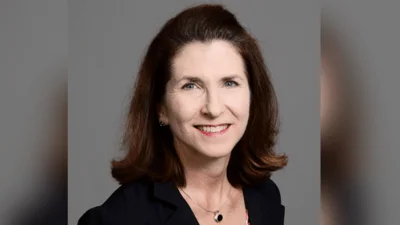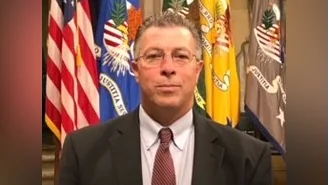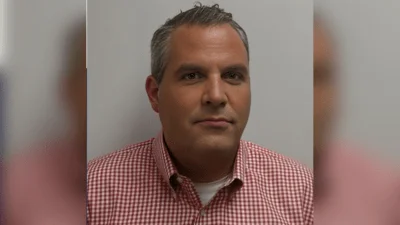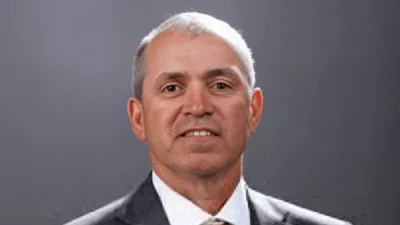The Congressional Record is a unique source of public documentation. It started in 1873, documenting nearly all the major and minor policies being discussed and debated.
“Free Speech (Executive Session)” mentioning Chuck Grassley was published in the Senate section on pages S1416-S1417 on March 9.
Of the 100 senators in 117th Congress, 24 percent were women, and 76 percent were men, according to the Biographical Directory of the United States Congress.
Senators' salaries are historically higher than the median US income.
The publication is reproduced in full below:
Free Speech
Mr. GRASSLEY. Mr. President, I have spoken on the Senate floor recently on the subject of free speech as it applies to the world of digital media. The principles of free speech are timeless and are applicable to new forms of communication. Still, it is natural that new questions will arise and new mechanisms might be needed to apply those principles across new modes of communication.
What shouldn't be in question is the need for open dialogue and freedom of speech in academia. Otherwise, what does the principle of academic freedom mean if it isn't involved with freedom of speech?
All of the progress that has made modern life possible has been the result of individuals who have been able to think of things in new ways, even if that challenged an old orthodoxy. A healthy and vibrant academic environment is not afraid of those challenges.
Only stagnant, defensive, and unconfident regimes suppress speech. Think about the recent protests in Russia, Belarus, or Burma. China's restrictions on the internet and suppression of minorities show that it is threatened by contrary ways of thinking.
Which would you describe as an advanced, stable, and dynamic society: North Korea or South Korea? Obviously, that describes South Korea well. It does not at all describe that part of the Korean Peninsula north of the 38th parallel.
So what does it say about so many American academic institutions that the notion of free thought and free speech has now become controversial? What purpose do universities serve if one of the purposes is not to discuss controversial subjects? I often say my definition of a university is where controversy runs rampant.
We hear lots of rationales about why the current generation of college students needs to be protected from hearing speech that could be offensive, hateful, or just plain wrong. Of course, none of us support hateful speech. I don't support it, but I do support freedom.
If you empower those in authority to limit hate speech, whether they be college administrators or government officials, that power will eventually be abused to limit dissenting points of view of all kinds, and that is where some universities are right now.
Even in Iowa's three public universities, we have seen recent efforts to shut down mainstream, center-right views. For instance, a dean at the University of Iowa sent an email across a university platform criticizing a Trump administrative Executive order, but at that same university, when a student challenged the position of the dean using the very same medium, the student was threatened with disciplinary action.
Well, the dean has since apologized for his initial handling of the subject, so I don't raise that to pick on him. In fact, that very dean has befriended me in very many ways and in thoughtful ways as well. But it just makes you wonder if it is part of a broader cultural trend in academia, what went on in that instance at the University of Iowa.
Then there was an English professor at Iowa State University who had to be reprimanded for banning her students from writing papers expressing certain viewpoints such as opposition to abortion or same-
sex marriage. The president of my alma mater, the University of Northern Iowa, had to step in to reverse a decision by the student senate denying a group of pro-life students student organization status purely because of their political views.
In each case, the university administrations of these three universities ultimately resolved these incidents well and properly so. I mention them not to pick on my State of Iowa's universities and not to criticize any university, for that matter, but because they seem to be examples of a broader trend on campuses across the country of a knee-jerk reaction to shut down speech some find disagreeable.
The best response to the expression of views that you find repugnant is speech that points out the errors of that particular way of thinking. Now, I think that is best expressed by the University of Chicago's policy, which has become kind of a gold standard for free speech advocacy on university campuses. The University of Chicago expressly prohibits obstructing or otherwise interfering with freedom of others to express views they reject or even loathe.
If you are confident in the rightness of your views and you have an environment that allows free expression of those views, you need not fear speech you find wrong. Of course, that assumes that human beings are all gifted with the power of reason and can discern what is right.
Now, if it happens that that is not the case, if people cannot be trusted to listen to different views and come to the right conclusion, then there is no basis for democracy and our system of self-government, then, is fundamentally flawed.
You can shield students from hearing challenging and uncomfortable views while in college but not when they get out in the real world. Just think of these college students who are on campus. What if they had left high school for the world of work? They would be faced with all these things every day.
So what is special about a college campus? In fact, it is so special that you ought to have a discussion of all these subjects. Academic institutions that do not allow for student views to be challenged, to be tested, to be refined through rigorous debate are doing those very same students a very great disservice. These students' knowledge will be limited, then, and their views unsophisticated. Their ability to deal with different ways of thinking, which they will inevitably encounter throughout their lifetime, will be greatly diminished.
I feel sorry for students who graduate from colleges that cocoon them from controversy. Let me repeat what I said at the beginning. I have always thought of a university as a place where controversy should run rampant.
The notion that the voices students hear must be curated for their own good is concerning, not just because it has a totalitarian ring but because it is harming students in the long run, when they have to deal with the real world. If students are showing up on campus unable to cope emotionally with hearing conflicting viewpoints, that is a problem of their upbringing and education to that point, before they go to that university. It is something colleges need to confront head-on for their students' well-
being. Further shielding students from having their views challenged and then sending them out in the world thinking they are prepared is a recipe for failure.
Americans seem to be losing the ability to understand the point of view of those with whom they disagree. That is an unrealistic point of view for Americans to have. It is a failure to teach about freedom. Questioning of motives has replaced principled argument. Shouting insults has displaced logical debate.
Don't you see, this is a societal trend that increasingly is reflected in the Halls of Congress--right here. Those who have attended institutions of higher education should have to be exposed to the great thinkers of the past and the present, be able to argue points logically, and, more importantly, understand the points of those whom they are trying to persuade or refute.
College graduates should be models of civil discourse. Instead, they are too often the vanguard of the closing of the American mind. For the sake of their students and for the benefit of society, I urge college administrators, trustees, alumni, and all Americans who value the free exchange of ideas to work toward reversing this trend.
Open debate may seem contentious at times, but it is the only path toward mutual understanding, which is so needed right now in American society, our less-than-civil American society, which that less-than-
civil American society tends to show up in a democracy that has representative government where, if you are really going to have representative government, wouldn't you expect some of what is happening at the grassroots to show up here in the Halls of Congress? And we do see it all the time, to our shame.





 Alerts Sign-up
Alerts Sign-up